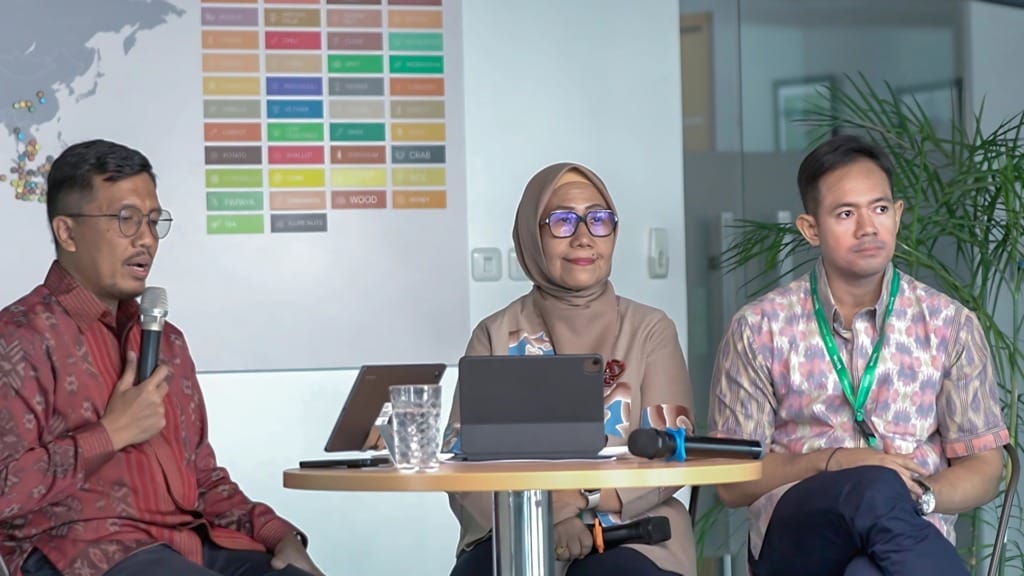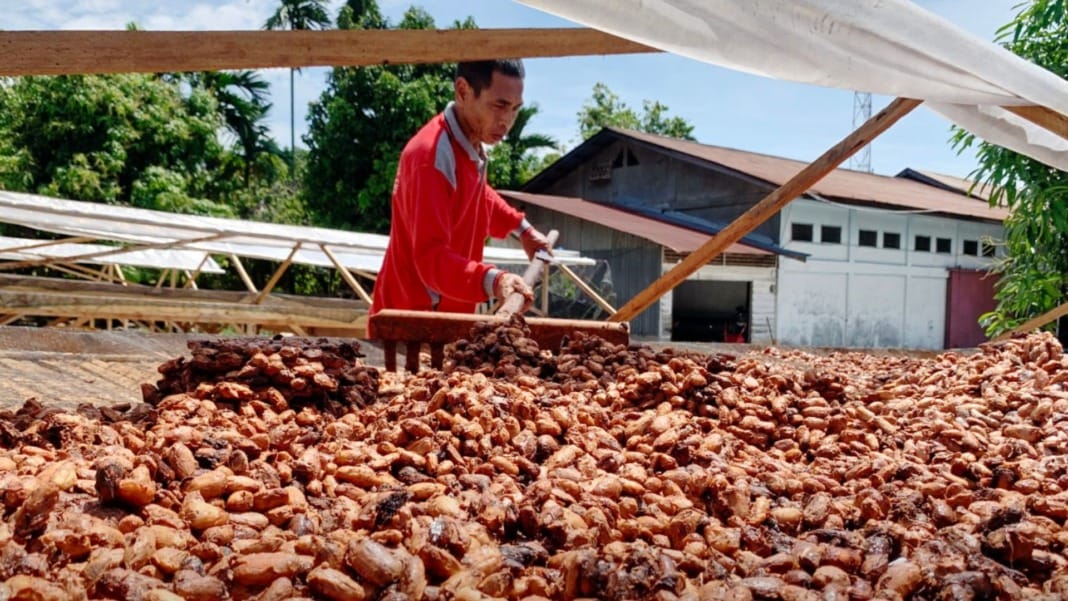Industry players across Indonesia’s agricultural sector gathered on 22 January for BeyondTraceability Talks, a forum organised by Koltiva to spark conversations around global sustainability regulations. The focus was on the European Union Deforestation Regulation (EUDR) and other emerging compliance frameworks.
The discussions highlighted the urgent need for collaboration between governments, businesses, and smallholder farmers to ensure that Indonesia’s agricultural sector meets international standards while protecting the livelihoods of small producers.
EUDR and the growing push for sustainability compliance
Asia, home to 15% of the world’s forested land, faces mounting pressure to curb deforestation linked to agriculture. Regulations like the EUDR are designed to stop deforestation-linked products from entering global markets, meaning producers must show their products are deforestation-free.
At the forum, government officials, businesses, and public-private partnerships came together to discuss the challenges of meeting these standards. A key focus was finding ways to support smallholder farmers, who often lack the tools, technology, and funding to comply with such strict requirements.
Diah Suradiredja, from the Secretariat National Dashboard Development at Indonesia’s Coordinating Ministry of Economic Affairs (CMEA), said: “While the EUDR is a critical regulation, it’s not the only one. Emerging regulations, such as the CSRD and CSDDD, could also impact the way the industry operates. It’s essential that all stakeholders are aware of these frameworks and start preparing their compliance efforts accordingly.”
Indonesia’s government has already introduced the National Dashboard, a platform to improve agricultural data management, traceability, and compliance tracking. The dashboard supports the collection of data on smallholder producers, land status, and legal documents. These records are critical for meeting EUDR’s demand for full traceability, but many smallholders still struggle to supply such data. Without digital tools or financial support, smallholders risk being excluded from the supply chain entirely.
To address this, Indonesia is rolling out training programmes to help farmers understand compliance requirements and improve land legality processes. By working closely with industry players, the government aims to secure funding and technical support for smallholders.
Collaboration is key to smallholder inclusion

The forum also highlighted the efforts of PISAgro, a platform that promotes sustainable farming in Indonesia. PISAgro works directly with producers, cooperatives, and businesses to help smallholders adopt sustainable practices and meet international standards.
One of the most pressing concerns raised was the risk of smallholders being left out of global supply chains. Small-scale farmers form the backbone of Indonesia’s agriculture sector, and their inclusion is vital for both sustainability and economic development.
Insan Syafaat, Executive Director at PISAgro, stressed the importance of working together. “Collaboration has been key in driving compliance as each stakeholder has an important role to support the smallholder producers to ensure they are not left behind,” Insan said.
Traceability systems and certification processes are expensive, and larger companies are often the only ones able to afford these costs. If smallholders are excluded, they lose access to international markets, and the industry as a whole suffers. This risk is particularly high for sectors like palm oil, rubber, and cocoa, where smallholders play a major role.
Non-profit organisations, businesses, and government bodies are now working to ensure that smallholders are fully integrated into traceability systems. Improving data collection and monitoring processes is a priority to help smallholders meet sustainability requirements and continue participating in global markets.
Koltiva’s role in driving traceability and capacity building
As the organiser of BeyondTraceability Talks, Koltiva is at the forefront of providing technology and training to help the agricultural industry meet compliance standards. Its KoltiTrace platform offers companies a tool to track products from seed to shelf, ensuring full data transparency. This traceability is essential for meeting the EUDR and other sustainability regulations.
Koltiva’s support goes beyond technology. The company also runs on-the-ground training to help farmers improve agricultural practices, secure land legality, and understand compliance requirements. By providing this combination of tech and training, Koltiva aims to empower smallholders to meet global standards and access international markets.
On the importance of technology, Ainu Rofiq, Co-Founder and Board Member of Koltiva, said: “Our role is to facilitate a transparent and accountable agricultural supply chain. I believe technology is transforming regulatory compliance in several ways: transparency and traceability, risk management, automation and efficiency, and building trust by enhancing collaboration. We work closely with governments, NGOs, and businesses to provide solutions that ensure full traceability and help stakeholders meet evolving regulatory standards. It’s all about empowering local communities, enhancing supply chain integrity, and supporting long-term sustainability.”
As regulations evolve, ongoing cooperation and foresight will be crucial to keeping Indonesia’s agricultural industry both competitive and sustainable. Forums like BeyondTraceability Talks will continue to play a vital role in keeping the conversation going and ensuring all stakeholders, especially smallholders, stay informed and included in global supply chains.





